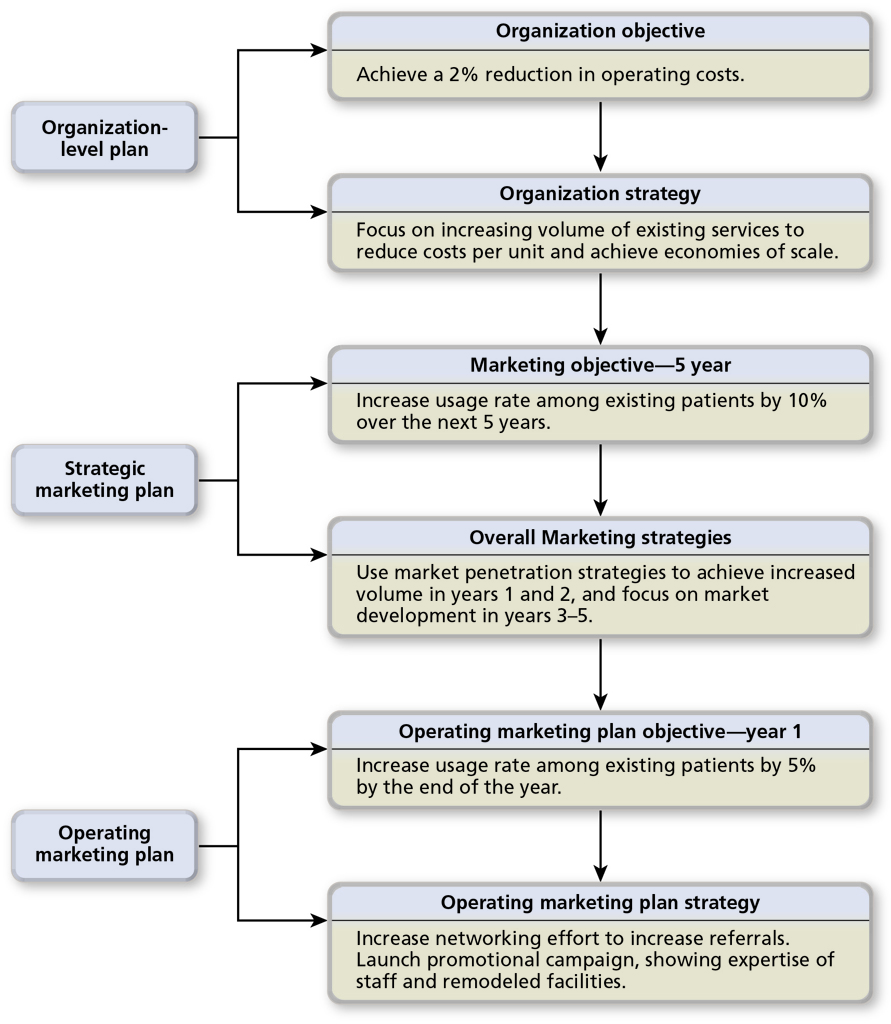- The key marketing objectives of Dignity Health
- Why the objectives fit the role of the health care organization
- What key marketing objectives a marketing director should focus on when developing a marketing plan (Explain your reasoning.)
The paper:
- Must be three double-spaced pages in length (not including the title page and references page) and formatted APA
- Must include a separate title page with the following:
- Title of paper
- Student’s name
- Course name and number
- Instructor’s name
- Date submitted
- Must use at least three scholarly sources in addition to the course text.

-
7.4 Marketing Strategy
Like management itself, marketing strategy development is both a science and an art, a product of both logic and creativity. The scientific aspect deals with assembling and allocating the resources necessary to achieve a company’s marketing objectives by emphasizing opportunities, costs, and time. The art of strategy is mainly concerned with the use of resources, including motivation of the workforce, sensitivity to the environment, and ability to readjust to the counterstrategies of competitors.Marketing strategies provide direction for marketing efforts. Alternate strategies are courses of action managers evaluate before committing to the specific course of action outlined in the marketing plan. Thus, strategy links objectives and results. Strategy is the answer to one of the basic questions posed in a marketing plan: How are we going to get there?The development of a marketing strategy usually encompasses a two-step process: (a) identification of the target market (discussed in detail in Chapter 8); and (b) creation of a marketing mix aimed at satisfying the needs of that target market (discussed in detail in Chapters 9–11). The marketing strategy used by a company is the result of the blending together of various marketing elements. These elements, which are known as the four Ps of marketing, consist of (a) the product/service to be offered to buyers; (b) the distribution of products to various outlets, referred to as place; (c) the promotion or communications to prospective customers, using various promotional techniques; and (d) the price charged for the product or service. The term marketing mix describes these various elements. Therefore, marketing strategy development may be viewed as developing a marketing mix aimed at satisfying the needs of selected market segments and accomplishing specific marketing objectives.As Figure 7.3 shows, marketing-mix decisions are made with a particular market segment in mind. Marketing effort is targeted at the selected segments through blending the elements of the marketing mix into a cohesive strategy aimed at satisfying those specific segments. An organization targeting several segments must develop an overall marketing program, which includes all of its marketing activities.The development of alternate marketing strategies can be viewed in many ways, but three approaches will be discussed in this chapter. First, there is the overall way a firm approaches the markets it is attempting to serve. Second, there is one firm’s strategy in relation to competitive strategies. The third approach deals with the position of a product or firm in relation to competitive offerings.


